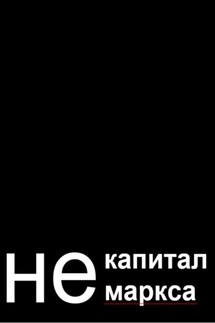The General Theory of Capital: Self-Reproduction of Humans Through Increasing Meanings - страница 27
Both materiality and sociality are closely related to abstractness, that is, the ability to understand causes and motives, to calculate and compute in the broadest sense. In primates, the size of the prefrontal cortex depends on the community size: the more social connections, the larger the cortex (cf. Sapolsky 2017, p. 51). The mind is the same layering of different periods and epochs as the brain. We can trace the entire sequence from the oldest to the later elements and functions in it:
“Thus, in looking at a bacterium under the microscope, it answers with a continuous ‘computo ergo sum.’ One has to know how to listen. But what could it mean to say, ‘I compute for myself?’ It means that I place myself at the center of the world, the center of my world, the world that I know, to process it, to consider it, and accomplish all the measures of protection, defense, etc. It is here that the notion of the subject makes its appearance, along with the computo and its egocentrism. The notion of the subject is indissociable from this act of computation, where one is not only one’s own finality, but where one also constitutes one’s own identity” (Morin 2008, p. 73).
In living nature, a subject arises where “biomechanical calculation” takes place. In a culture-society, a subject (an economic unit) arises where “economic calculation” begins. A Paleolithic clan community, a king’s court, a modern firm are economic units. Calculation or choice is an evolutionary process that evolves within human self-reproduction and ensures its continuation. As a comparison of past, present and future costs and benefits, calculation preceded any production: a community of hunters and gatherers had its own way of calculation and its own relationship of individuals, based on this way. Indirect reciprocity is a method of calculation in which after a successful hunt, the prey was divided among all members of the clan. This secured a share of the pray in case of an unsuccessful individual hunt and solved the problem of storing the excess meat (Sapolsky 2017, pp. 324-5). The growth of agricultural production expanded the range of man-made values that were not present in nature but were necessary for the self-reproduction of human communities. This increased the importance of economic calculation and governance, that is, the role of reason compared to that of instincts and practices.
Man is both the subject and the object of his own activity, nature and culture are its means. “The elementary factors of the labor process are 1, the personal activity of man, i.e., work itself, 2, the subject of that work, and 3, its instruments” (Marx and Engels 1975-2004, vol. 35, p. 188). To these factors one must add man himself as the driving force of activity and his needs as the source of this driving force. The evolution of meanings is associated with the unfolding of needs and the development of material, social and mental values. As we said above, values are, on the one hand, a representation of needs in the minds of people, and on the other hand, a projection of needs onto things and circumstances. “Value is not intrinsic, it is not in things. It is within us; it is the way in which man reacts to the conditions of his environment” (Mises 1996, p. 96). Projections can be positive and negative, good and evil.







